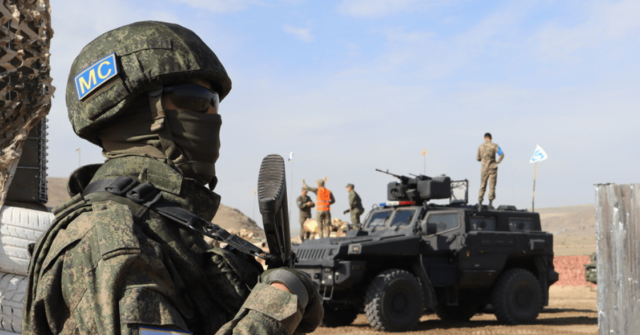In a recent address in Paris, Sir Richard Moore, the chief of Britain’s MI6, emphasized the escalating threats that Europe faces due to Russia’s actions, labeling it a campaign of sabotage. He stated that the current global security landscape is the most perilous it has been in decades, with significant challenges not only from Russia but also from China, North Korea, and Iran, compounded by ongoing terrorist threats. During the speech commemorating the 120th anniversary of the Entente Cordiale alliance between the UK and France, Moore highlighted the crucial importance of victory in the Ukraine war for maintaining the security of European and international order. He communicated a clear vigilance against Russian aggression, asserting the necessity for unity among Western democracies to counteract these threats.
Sir Richard articulated the severity of the situation in Europe, citing intelligence agencies’ discoveries of aggressive Russian tactics that aim to destabilize the continent. He described a “staggeringly reckless campaign” of sabotage by Russia, which includes nuclear threats meant to instill fear in Western nations and test their resolve in supporting Ukraine. He reinforced the positive outlook on Ukraine’s determination to succeed against these challenges, asserting that their willpower remains unshaken despite ongoing threats. His remarks suggest a belief that the collective strength of Western allied democracies can outlast the precarious state of Russian aggression.
Emphasizing the broader context of Russian sabotage, the speech outlined recent incidents that suggest a coordinated attempt to undermine Western support mechanisms. The investigation into the crash of a DHL cargo plane raised suspicions about potential sabotage rather than mere accident, paralleling other alleged Russian actions to disrupt logistics supporting Ukraine. These sabotage efforts reportedly manifest in various forms, from incendiary devices to poisoning attempts, reinforcing the perception of a calculated strategy by Russian intelligence to sow chaos throughout Europe.
Moore argued that the endowment of democratic legitimacy empowers Western nations, contrasting with what he described as Russia’s authoritarianism. He cautioned that Russia risks underestimating the resilience and strength of democracies, as their internal conflicts and spirited debates should not be mistaken for weakness. He positioned this clash of ideologies, democracy versus authoritarianism, as central to ongoing conflicts, advocating for the continued solidarity of Western nations in navigating these turbulent waters. The MI6 chief’s remarks denoted a commitment to thwarting not only Russian aggression but other global threats as well.
In the face of multiple global threats, Moore also addressed the challenges posed by other countries such as China, North Korea, and Iran. He highlighted the importance of a coherent strategy to mitigate the risks associated with an assertive China, embedding this within the broader narrative of safeguarding international interests that align with democratic values. During this period of geopolitical upheaval, Moore expressed an optimistic outlook regarding the impending second Trump presidency, contrasting with alarmist opinions. He voiced confidence in the effectiveness of the long-standing US-UK intelligence alliance and its capability to navigate shared threats more smoothly than anticipated.
Moore’s speech also illuminated the dual nature of sabotage occurring on both sides amidst the ongoing conflict in Ukraine, where both Russian and Ukrainian forces engage in covert actions to upset each other’s plans. Ukrainian operatives are proactive in targeting traitors and disrupting supply lines, indicating a parallel struggle for control and influence beyond the frontlines. With accusations of widespread Russian sabotage extending across Europe—from reconnaissance efforts for potential assassination plots to arson attacks—such incidents exemplify the ongoing hybrid warfare tactics at play. The consequences of these actions reflect a broader strategic narrative, emphasizing the considerable stakes involved in the contest for dominance and security in Europe.

